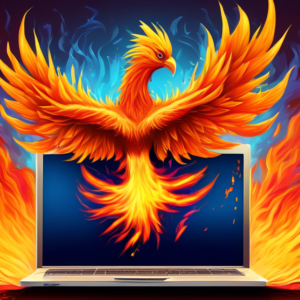The tech world is abuzz with excitement following Microsoft’s Build conference, and for a good reason. The event unveiled a slew of innovations, particularly in the realm of Windows 11 and its burgeoning AI capabilities. But the question on everyone’s mind is, did these announcements signal the start of a PC-laptop revolution? Let’s delve into the details.
Windows 11: Stepping into the Future with AI
At the heart of this potential revolution lies Windows 11, Microsoft’s flagship operating system. Build showcased how Windows 11 is being fundamentally reshaped by AI, with features designed to enhance productivity, creativity, and overall user experience. The integration of AI goes far beyond simple voice assistants; it’s about fundamentally changing how we interact with our PCs and laptops.
One of the most significant developments is Windows Copilot, an AI-powered assistant deeply integrated into the operating system. Imagine having a personal assistant that understands your workflow, anticipates your needs, and helps you accomplish tasks more efficiently. Copilot can summarize meetings, draft emails, and even suggest different ways to present information. It’s not just about automation; it’s about providing intelligent assistance that empowers users.
Empowering Developers: The Key to Revolution
While Microsoft’s vision for AI-powered PCs is compelling, its success hinges on the developer community. Build made it clear that Microsoft is committed to providing developers with the tools and resources they need to build the next generation of AI-powered applications. The introduction of the Hybrid Loop, a development pattern for building AI experiences that leverage both cloud and local resources, is a testament to this commitment. This approach allows developers to create AI apps that are both powerful and responsive, even on devices with limited processing power.
Microsoft’s push to democratize AI development is another crucial aspect. By simplifying the process of creating and deploying AI models, they’re opening doors for a wider range of developers to contribute to this evolving landscape. This could lead to an explosion of innovative AI-powered apps, further fueling the PC-laptop revolution.
Beyond the Hype: Real-World Implications
It’s easy to get caught up in the hype surrounding AI, but it’s crucial to consider the real-world implications of these advancements. How will these AI-powered PCs and laptops impact our daily lives? Will they truly revolutionize the way we work, learn, and create?
The potential benefits are undeniable. Increased productivity, enhanced creativity, and more personalized computing experiences are just the tip of the iceberg. Imagine a world where AI assistants help students learn more effectively, where professionals can accomplish complex tasks with ease, and where everyone can access the power of AI regardless of technical expertise. This is the promise of a PC-laptop revolution.
The Road Ahead: Challenges and Opportunities
While the future looks bright, the road to a PC-laptop revolution is not without its challenges. Ensuring user privacy and security in an AI-driven world is paramount. Microsoft is taking steps to address these concerns, but the conversation about ethical AI development needs to continue.
Another challenge lies in bridging the gap between potential and reality. The widespread adoption of AI-powered PCs and laptops will depend on factors such as affordability, accessibility, and user adoption. Microsoft’s efforts to democratize AI development and make it more accessible are crucial in this regard.
Despite these challenges, the opportunities presented by an AI-powered PC-laptop revolution are immense. It’s not just about technological advancement; it’s about empowering individuals, transforming industries, and shaping a future where technology serves humanity in profound new ways.
Did Microsoft Build Ignite a Revolution?
While it’s too early to definitively declare a revolution, Microsoft Build undoubtedly laid the groundwork for a significant shift in the PC-laptop landscape. The integration of AI into Windows 11, the empowerment of developers, and the focus on real-world applications paint a compelling picture of a future where AI-powered PCs and laptops become the norm. The coming years will be crucial in determining whether this vision becomes reality, but one thing is clear: Microsoft has ignited a spark, and the potential for a revolution is undeniable.
